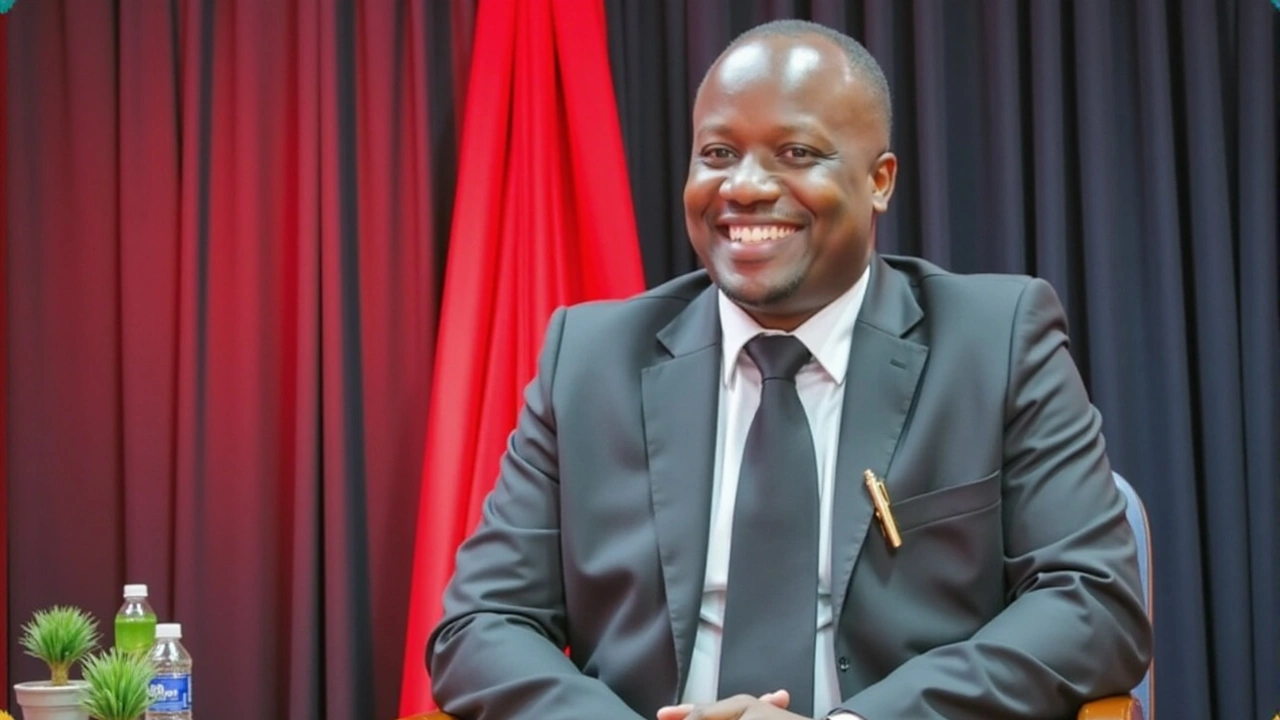The Departure of Social Health Authority's CEO Elijah Wachira: A Closer Look
The Social Health Authority (SHA) has recently been thrust into the spotlight following the suspension of its acting CEO, Elijah Wachira. The decision, made by the SHA Board, mandates Wachira's 90-day compulsory leave to facilitate an in-depth investigation into his professional conduct and performance. Such moves aren't new to the SHA, but the implications and underlying reasons extend far beyond administrative protocols.
Elijah Wachira's brief tenure as acting CEO has been mired in controversy, revolving primarily around the SHA's ongoing transition from the National Health Insurance Fund (NHIF). This transformation, aimed at enriching the nation's healthcare landscape under the banner of Universal Health Coverage (UHC), has not been without its hurdles. Mounting unpaid bills have beset hospitals, some even resorting to demanding cash payments directly from patients. This situation starkly contradicts SHA's core mission of enhancing healthcare accessibility, raising critical questions about Wachira's leadership.
The SHA Board expressed explicit concerns, particularly regarding Wachira's financial decisions. Notably, an alleged diversion of Sh1.6 billion, intended to settle debts owed to public hospitals, seems to have been redirected to private ones. While such moves might be made under the guise of balancing financial portfolios, they inherently clash with SHA's stated objectives of supporting public medical entities. This factor, among others, has fueled the flame of scrutiny against Wachira.
Appointed as the NHIF CEO in October last year, Elijah Wachira emerged from a rigorous selection process, bringing a wealth of experience from his role as Managing Director of CIC General. His reputation as a seasoned professional in the insurance industry had positioned him as a potentially transformative figure for SHA. But only two months into SHA's establishment, this unexpected leadership challenge outlines the depths of underlying organizational issues.
Broader Implications for SHA
The SHA itself is not unfamiliar with leadership shakes. Prior to this, the removal of former board chairman Dr. Timothy Olweny, shortly before SHA's official launch, had already hinted at potential structural instability or ideological disagreements within the organization. Such sweeping changes at the top could indicate deeper underlying discord that needs addressing to steer SHA effectively towards its envisioned goals.
In the wake of Wachira's suspension, Robert Ingasira has been appointed as the Acting CEO. As the current Financial Services Director, Ingasira is no stranger to the intricacies of SHA's financial landscape. Still, the mantle of leadership thrust upon him necessitates strategic planning and decisive action to navigate the SHA through its present turbulent waters.
While Wachira’s leadership, albeit temporary, casts a long shadow over the SHA's credibility, the Board's decision to retain his wages and benefits during his leave suggests their commitment to uphold procedural fairness. Such a gesture reinforces the notion that the investigation remains a matter of due diligence, rather than an outright dismissal, leaving room for potential redemption should the allegations be disproved.
Rising Challenges and Prospects
The challenges that currently envelop the SHA serve as a cautionary tale about the complexities of public healthcare management. The organization finds itself at a crossroads where addressing fiscal responsibility, strategic policy implementation, and ethical leadership, become paramount. The prospect of rebuilding trust within the public domain depends significantly on how SHA's leadership dynamics evolve in the subsequent months.
Beyond WATCH's predicament, the SHA faces broader institutional challenges that transcend individual leadership failures. Issues such as unequal resource allocation between public and private health facilities, ensuring timely settlements to healthcare providers, as well as revisiting SHA's strategies to ensure that their goals align with the UHC mandate, must also concurrently addressed.
The Way Forward
As the SHA navigates this critical junction, there is a growing anticipation for a recalibrated strategic plan, integrating the lessons from recent turmoil to forge a resilient path ahead. A transparent, publicly communicated action plan could go a long way in reaffirming SHA's dedication to the public's health needs.
At its heart, the SHA holds the potential to revolutionize healthcare access, providing a model for other nations in the region. For this potential to be realized, it's essential to strike a balance between effective leadership, transparent fiscal practices, and the unwavering commitment to universal healthcare delivery.
This saga's unfolding holds lessons for all stakeholders—government bodies, healthcare providers, and citizens at large—reinforcing the indispensable nature of accountability, clarity, and prioritization in public health administration.







simran grewal November 13, 2024
So let me get this straight - they took 1.6 billion meant for public hospitals and gave it to private ones? And we're supposed to be impressed by the "due diligence"? 😒
Benjamin Gottlieb November 14, 2024
This isn't just mismanagement - it's a structural betrayal of the UHC ethos. The diversion of funds isn't a lapse in judgment; it's a symptom of institutional capture by private capital. We're witnessing the quiet privatization of public health under the veneer of fiscal pragmatism. The real question isn't whether Wachira is guilty - it's whether the board ever intended to uphold equity.
Carolette Wright November 14, 2024
I just hope someone's paying the nurses. 😭
Mark Burns November 15, 2024
Bruh. This is like watching a soap opera where the CEO is the villain and the hospitals are the helpless family. Someone get me popcorn.
Lucille Nowakoski November 16, 2024
It's heartbreaking to see how systemic issues get pinned on one person. Wachira might be the face of this mess, but the real problem is the lack of oversight, the political interference, and the failure to build sustainable systems before launching. We need to fix the architecture, not just replace the architect.
Beverley Fisher November 16, 2024
I just feel so sad for all the patients who are being turned away or asked to pay cash. That’s not healthcare, that’s a gamble. 💔
Angela Harris November 17, 2024
Interesting. I wonder if this will change anything.
Brittany Vacca November 18, 2024
I'm just shocked that this is even happening... I mean, we're talking about people's lives here. 😔 I hope they're being careful with the investigation. It's just... so much pressure.
jen barratt November 18, 2024
Honestly? The board's move feels performative. They suspend him but keep his salary? That’s not fairness - that’s damage control with a side of optics. Meanwhile, hospitals are running on fumes and patients are being asked to pay out of pocket. The real scandal isn't the missing money - it's that we're still acting like this is normal.
Doloris Lance November 19, 2024
The ethical violation here is not merely fiscal - it's epistemological. The very ontology of public health as a social good has been subordinated to a neoliberal framework of market efficiency. The redirection of funds to private entities constitutes a form of institutionalized medical apartheid, where access is determined not by need, but by profitability. This isn't governance. It's commodification.
Anita Aikhionbare November 19, 2024
This is why we can't trust outsiders to run our systems. They come in with their fancy titles and think they know better, then they bleed our public hospitals dry. We need Kenyans leading Kenyan institutions - not imported consultants playing financial chess with our people's lives.
Vinay Menon November 20, 2024
I think the real issue is how fast this was thrown together. SHA was launched without proper infrastructure, and now they're blaming the CEO for the mess? Look, someone had to run it - and if the board didn't give him the tools, then the failure is theirs. Let's not turn this into a witch hunt. We need accountability, but also patience and support for the new guy. Ingasira deserves a chance.